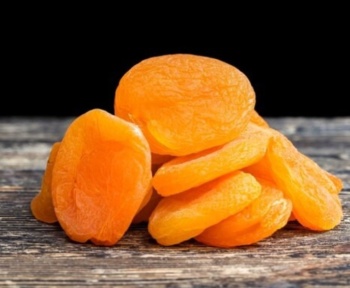Introduction
Apricot dry fruit is quickly emerging as a popular superfood in the UK and USA, thanks to its impressive nutritional profile and versatile uses. Not only are dried apricots packed with essential vitamins, minerals, and antioxidants, but they also offer multiple health benefits, making them a go-to snack for health-conscious consumers. This blog explores why apricot dry fruit has gained traction, its benefits, how to incorporate it into your diet, and practical tips for buying and storing it. Discover why adding apricot dry fruit to your daily diet can be delicious and nutritious.
What is Apricot Dry Fruit?
Apricot dry fruit refers to apricots that have been dried to remove most of their water content, resulting in a chewy, nutrient-dense snack. This process preserves the fruit for a longer period and enhances its natural sugars, giving dried apricots a sweet, satisfying flavor. Historically, apricots have been valued in various cultures for their taste and nutritional benefits, and dried apricots, in particular, have been cherished as a convenient and nutritious snack.
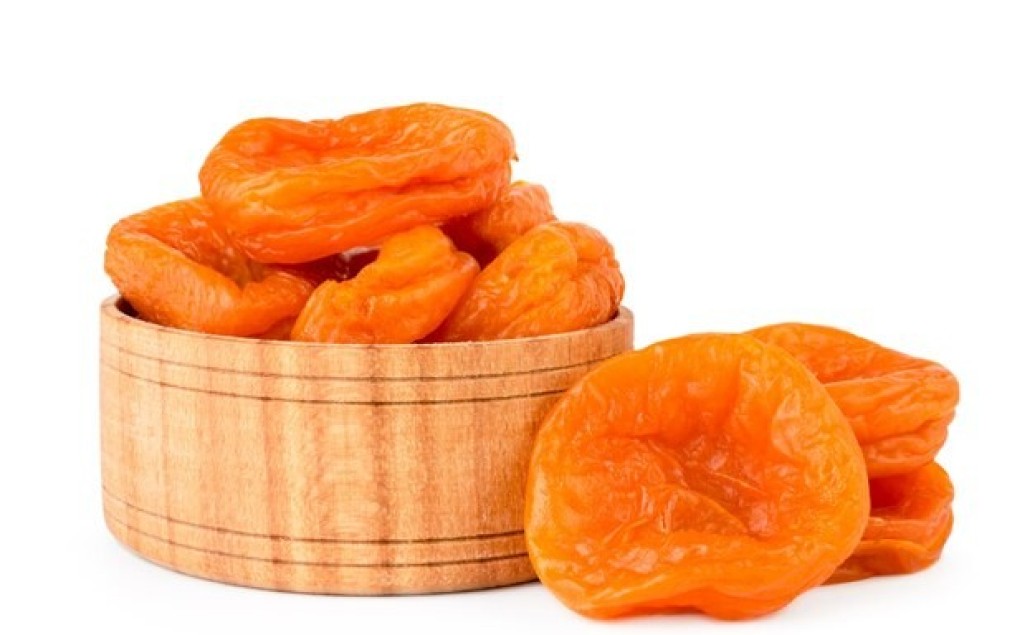
Drying Process Overview
Apricots can be dried using sun-drying or mechanical methods. Sun-dried apricots are often darker in color and have a richer taste. Machine-dried apricots are usually brighter due to preservatives like sulfur dioxide.

Dry Apricot Fruit Benefits: Why It’s a Superfood
Nutritional Profile of Apricot Dry Fruit
Dried apricots contain essential nutrients like vitamin A, potassium, and fiber. They’re also high in antioxidants, which help fight oxidative stress and reduce the risk of chronic diseases.

Health Benefits
- Immune Health: The high vitamin A and antioxidants in apricot dry fruit help boost the immune system, keeping colds and infections at bay.
- Digestive Health: Its fiber content supports healthy digestion and regular bowel movements.
- Heart Health: Potassium in dried apricots helps regulate blood pressure and maintain a healthy heart.
- Skin Health: Antioxidants and vitamin A improve skin health by combating aging signs and promoting a radiant complexion.
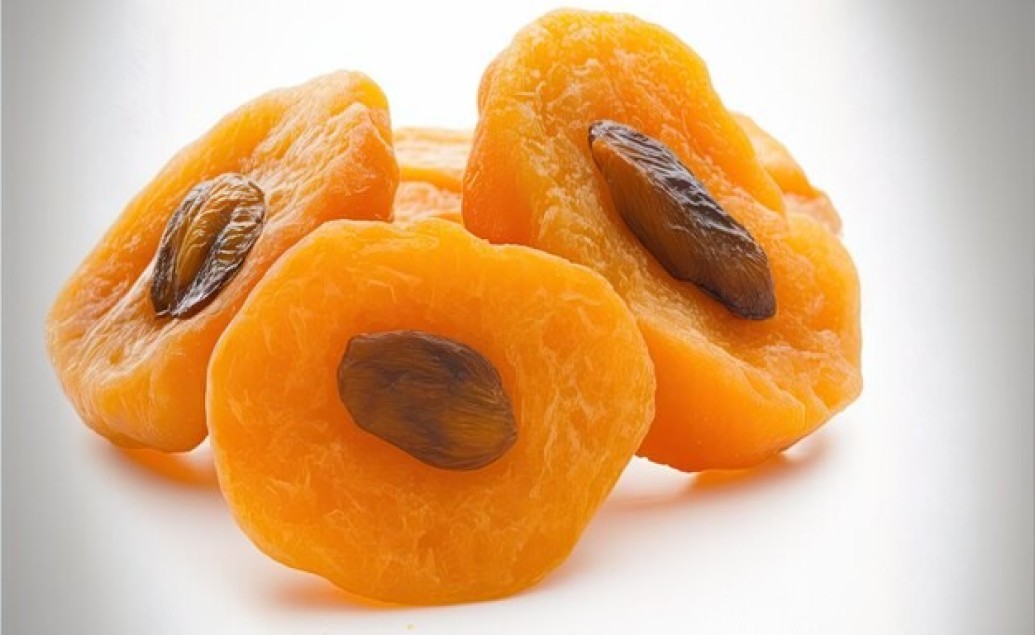
Why the UK and USA are Embracing Apricot Dry Fruit
Market Trends and Consumer Interest
With the rising popularity of health foods, dried fruits like apricots are becoming staples in Western diets. According to recent market studies, the demand for dried apricots has grown significantly due to their convenience and health benefits, especially among young adults looking for nutritious snacks.
Nutritionist Insights
Dr. Samantha Hayes, a nutritionist in the UK, says,
“Dried apricots are a fantastic addition to any diet. They’re nutrient-dense, easy to carry, and a natural source of energy—perfect for busy individuals looking to stay healthy.”
Apricot Dry Fruit Nutrition Facts
Detailed Nutritional Breakdown
Below is a breakdown of the nutrients in apricot dry fruit based on a 100g serving. This table will help you understand why dried apricots contain health-promoting compounds.
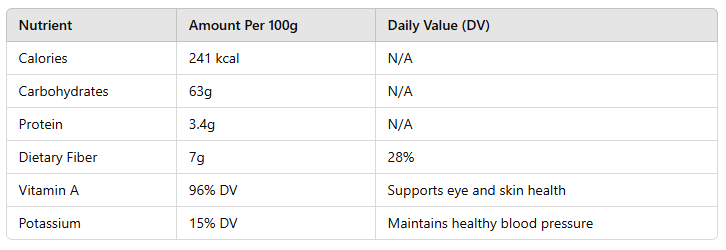
Calories and Serving Sizes
For those tracking calorie intake, dried apricots offer healthy calories per serving. A dried apricot has about 17 calories, making it a satisfying yet low-calorie snack.
Top Uses of Apricot Dry Fruit in Daily Diets
How to Incorporate Apricots into Your Diet
Dried apricots are a versatile ingredient that can be enjoyed in various ways. Here are some popular options:
- As a Snack: Grab a handful of dried apricots as an on-the-go snack.
- In Breakfast Bowls: Add chopped apricots to oatmeal or yogurt.
- In Salads: Dried apricots add a sweet contrast to savory salads.
- Smoothies and Desserts: Blend apricots into smoothies or bake them into treats.
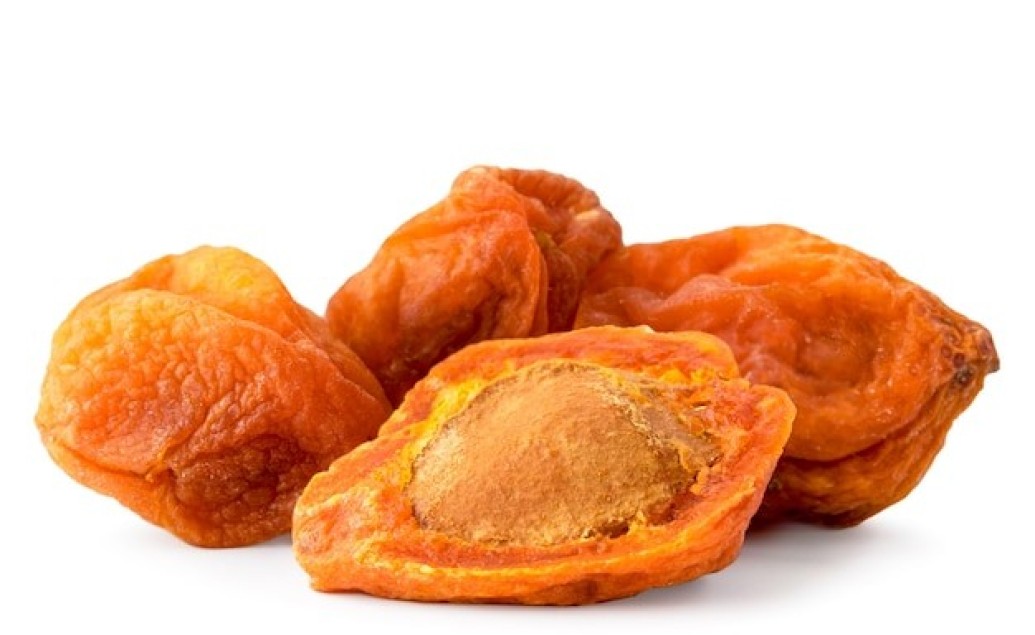
Recipe Spotlight: Homemade Apricot Jam from Dried Fruit
- Ingredients: 1 cup dried apricots, 2 cups water, 1/4 cup honey, 1 tsp lemon juice.
- Instructions: Soak apricots overnight, blend with other ingredients, simmer until thickened, and store in a jar.
Tips and Best Practices for Buying and Storing Apricot Dry Fruit
Checklist for Purchasing Quality Dried Apricots
When buying apricot dry fruit, follow these tips to ensure you’re getting a high-quality product:
- Choose organic and unsculptured dried apricots when possible.
- Check the label for added sugars or preservatives.
- Select products that look plump and not overly dried out.
Best Storage Practices
Store your apricots in an airtight container in a cool, dry place to keep them fresh and flavorful. If you buy dried apricots in bulk, consider storing them in the fridge or freezer to extend their shelf life.

Comparison of Apricot Dry Fruit with Other Popular Superfoods
Dried apricots offer unique health benefits, but how do they compare to other dried fruits? Here’s a quick overview:

Conclusion
Apricot dry fruit is undoubtedly a superfood worth incorporating into your diet, especially if you seek a convenient, nutrient-packed snack that supports overall health. The benefits of dried apricots are numerous, from improving digestion to enhancing skin health. Consider adding this super fruit to your daily routine for a natural nutrient boost and enjoy all its wellness advantages.
FAQs
Dried apricots are high in fiber, potassium, and antioxidants, making them excellent for digestion, heart health, and immune support.
A 100g serving of dried apricots contains about 241 calories. A single dried apricot has approximately 17 calories.
Yes, dried apricots are safe to consume daily in moderate amounts as part of a balanced diet. However, overconsumption can lead to high calorie and sugar intake.
Dried apricots can be part of a weight-conscious diet due to their fiber content, which promotes satiety. Just be mindful of portion sizes.
To make apricot jam, soak the dried apricots, blend them with water, honey, and lemon juice, and simmer until thickened. This makes for a delicious spread with no added preservatives.




